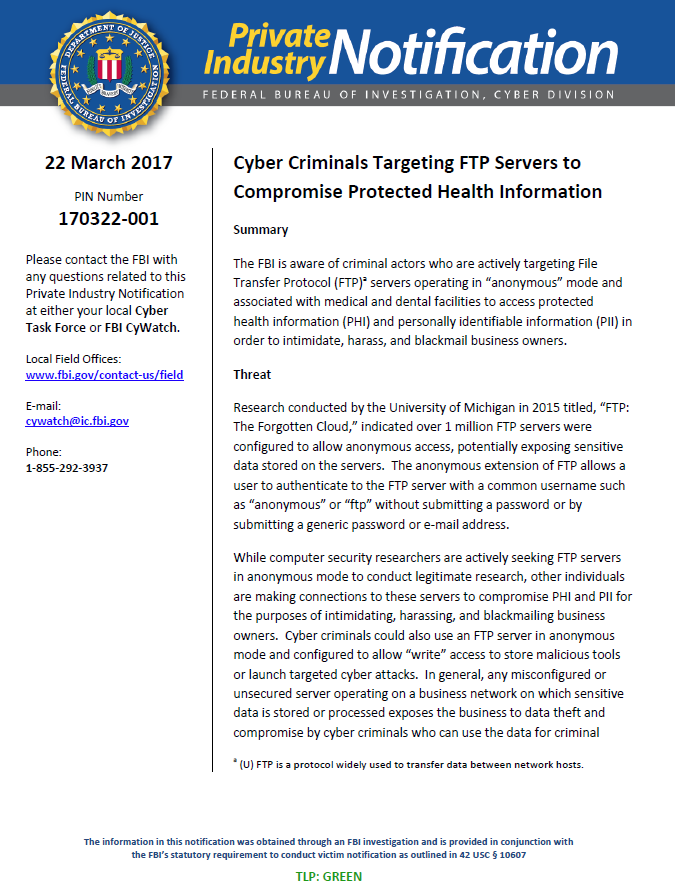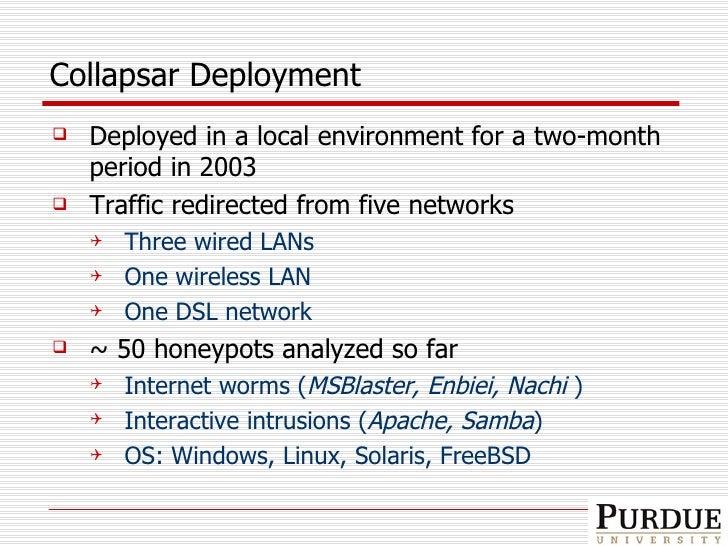

- #Photominer worm spreads via insecure ftp servers Patch
- #Photominer worm spreads via insecure ftp servers code
- #Photominer worm spreads via insecure ftp servers free
- #Photominer worm spreads via insecure ftp servers windows
#Photominer worm spreads via insecure ftp servers windows
The Windows shortcut vulnerability also allows hackers numerous possibilities for information and data theft as the vulnerability proves to be a faster method for spreading malware. Also, since the Windows Shell flaw is yet to be patched, this leaves cybercriminals a lot of opportunity to use the vulnerability in spreading more malware. In turn, it makes the analysis and removal difficult. The worm drops a rootkit component, a stealth mechanism which enables the malware to hide its routines from the affected users. These files are detected as WORM_STUXNET.SM and LNK_STUXNET.SM.
#Photominer worm spreads via insecure ftp servers code
Since the code for the exploit of the mentioned vulnerability was released, Trend Micro has been able to find new malware leveraging on the Windows Shell flaw. The purpose of this routine is still not determined, as engineers did not find any trace of malicious activities on these sites. The worm also attempts to connect to non-malicious sites such as and – both leading to, which is a betting site for football. Other than dropping copies of itself, WORM_STUXNET.A also drops RTKT_STUXNET.A, which the worm uses to hide its routines. LNK file is detected by Trend Micro as LNK_STUXNET.A.

LNK file exploits a specific vulnerability in Windows Shell to automatically execute the dropped copy of the worm once the infected drive is accessed. LNK file – a shortcut file that leads to an executable file – into the drives. Once users are infected, the worm detected as WORM_STUXNET.A drops a. It may also be embedded within documents. It may also be distributed through malicious websites. This threat may get into a user's system via infected removable drives and fixed drives, and network shares.
#Photominer worm spreads via insecure ftp servers Patch
Microsoft has not released a patch for this vulnerability as yet, says Trend Micro. These Trojan viruses are password-stealing malware.There is a new virus that is exploiting a Microsoft vulnerability. During investigations, Dai Guangjian, an anti-virus specialist at Kingsoft found that the Trojan got active on computers when Internet users generally shop online or play online games during vacations. Recently Kingsoft, another Chinese anti-virus firm said that Trojan viruses infected 1.4m computers across the country during the May Day holiday over a week.
#Photominer worm spreads via insecure ftp servers free
Jiangmin's website provides free downloadable tools to destroy the worm. The worm spreads other malware too by forcing the infected computers to link to and increase the click rate of the site said Beijing Rising, a Chinese anti-virus firm. The worm inside a victim's computer spread rapidly by breaking into the address book and sending itself to every other person on the mailing list, reported Beijing Jiangmin New Science Tech, an Internet security company. Shanghaidaily published this on June 2, 2007.Ĭomputers turned into "corpse computers" as they went under remote control. The strange thing is to get 'private photos' from an unknown MSN address, he observed. When Steven Zhang, an employee in a dot COM firm in his locality received the malicious files, he said that he had recognized the presence of a worm even before warnings came from anti-virus companies. Shanghaidaily published this on June 2, 2007. These users could be mostly white collared business executives, said Cao Linkxiang, a market manager with Beijing Jiangmin. There are speculations that the worm infected more than 50 percent of the MSN users in China. As it infected the computers, hackers were able to gain complete access over the stored data. Disguised as an image file the worm shows names as, "Here are my private pictures for you" and "Check out my sexy boobs". The computer virus Worm/MSN.SendPhoto, self-replicating in nature had entered 15m MSN Messenger accounts of Chinese users by June 1st afternoon. On Jin a similar instance when millions of users submitted the "yes" option, they downloaded a worm in place of a picture. It is very common that people allow picture files to come on their MSN Messenger accounts.


 0 kommentar(er)
0 kommentar(er)
